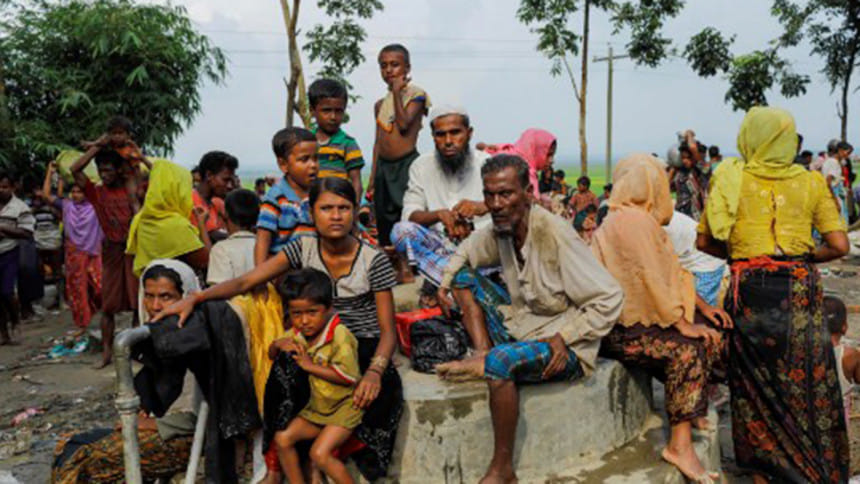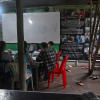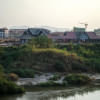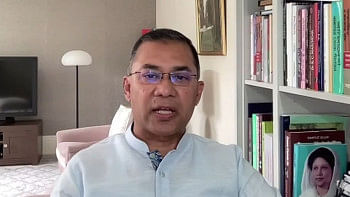ICRC concerned over violence against Rohingya

The International Committee of the Red Cross (ICRC) has expressed grave concern over the violence and its effect on all people in the northern areas of Rakhine in Myanmar.
It called on all persons involved in the violence to respect the rule of law and not to attack people who are not engaged in the violence, according to a media statement issued from Dhaka this morning.
The recent violence has caused massive numbers of people to leave their homes, and following the situation, the ICRC plans to increase its operations to help meet those people's needs.
"We plan to assist with water, food, medical care and other basic necessities. We also will help reconnect people who have been separated from their families or loved ones due to displacement. This assistance will be based on an assessment of the needs of the displaced," said the ICRC.
The ICRC is working closely with the Myanmar Red Cross Society, the Bangladesh Red Crescent Society and the International Federation.
"Together we operate with Red Cross Red Crescent staff, as well as volunteers who come from the communities where we are working. Their understanding of local conditions is invaluable in ensuring that we work in a neutral and impartial manner," it said.
Since the beginning of the crises at the end of August, the ICRC and the Movement partners have helped over 13,000 people stranded at the border between Myanmar and Bangladesh.
"We will soon help more. In Myanmar, in the first two weeks of the crisis, we helped 10,000 displaced people.
Fabrizzio Carboni, the ICRC's Head of Delegation in Myanmar, said, "We are deeply concerned by the current outbreaks of violence, and the devastating effect it is having on all people in the northern areas of Rakhine as well as in Bangladesh. Lives of those affected by this tragic situation have become simply unbearable. We continue scaling up aid to support all people fleeing violence, but more funding is urgently needed."
Ikhtiyar Aslanov, the ICRC's Head of Delegation in Bangladesh, said, "We are responding to the most urgent needs of the new arrivals from Myanmar within our capacity and resources. People are fleeing their homes with very few belongings and we hope that we can relieve some of their suffering by providing much needed healthcare, water and food. However, addressing the needs of all people will not be possible without additional donor support."
Much of the recent focus is on the worst violence in northern Rakhine, though the ICRC has been operating throughout the state since 2012. It is the poorest state in Myanmar, and one that has been badly impacted over the years by the violence and other disasters such as flooding.
The ICRC has a permanent presence in Sittwe, the capital city of Rakhine, Mrauk-U and Maungdaw. The ICRC teams have been working in these regions to improve healthcare systems, clean water, improving conditions of detainees in prison, and supporting solutions for sustainable livelihoods.
In Cox's Bazar, the ICRC has been supporting people fleeing Rakhine, but also the host communities since 2014.
It has been supporting two health facilities in Teknaf and Ukhiya sub-districts. The services and the infrastructure of both clinics have been upgraded to respond to the increasing number of arrivals from Rakhine. Services to reconnect separated family members have also been intensified since October 2016, and are still running in different camps at Cox's Bazar.
The International Red Cross and Red Crescent Movement - the Myanmar Red Cross, Bangladesh Red Crescent, IFRC and ICRC - is scaling up operations in Myanmar and Bangladesh, including in border areas.
Oxfam to help Rohingya refugees in Bangladesh
Oxfam is providing clean water, sanitation and tarpaulins for shelter to Rohingya refugees who have fled from violence in Rakhine State of Myanmar to Bangladesh, according to a press release issued by Oxfam International yesterday.
"People face a desperate situation and they have no clean drinking water and no food," said M B Akhter, Interim Country Director, Oxfam in Bangladesh according to the release.
Oxfam initially plans to help 200,000 people as the existing camps in Bangladesh are ill-equipped to handle the huge numbers of people and the Rohingya people need shelter, clean water, toilets and food urgently.
The people are homeless and hungry following a long and treacherous journey across the border and many are now sleeping under open skies, by roadsides and in forests, with no protection, said M B Akhter.
"People are physically and emotionally traumatized," he added.

 For all latest news, follow The Daily Star's Google News channel.
For all latest news, follow The Daily Star's Google News channel. 








Comments